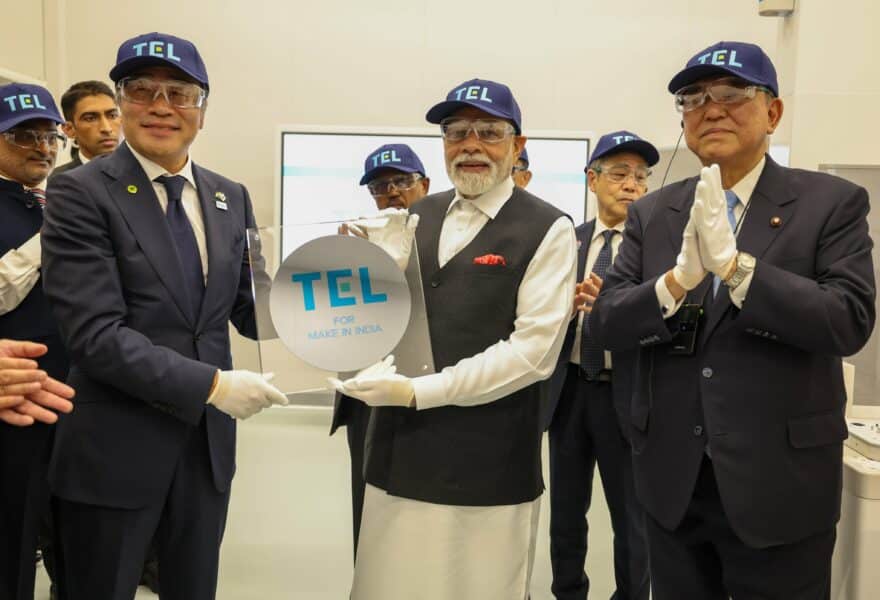– Advertisement –
From chip fabs to AI, Modi’s Japan visit put semiconductors centre stage, showcasing India-Japan synergy as talent and technology combine to shape the future of electronics.
On Saturday, Prime Minister Narendra Modi, during his visit to Japan, visited Tokyo Electron’s semiconductor manufacturing facility, underscoring New Delhi’s ambition to build a resilient chip-making ecosystem in partnership with Tokyo.
Modi, joined by Japanese Prime Minister Shigeru Ishiba, travelled by bullet train to Sendai, over 300km from Tokyo, to tour the plant. The facility, known as TEL Miyagi, is among Japan’s leaders in semiconductor equipment.
According to a report by The Economic Times, at the plant, Modi engaged with engineers and management teams on technology transfer, planned collaborations with India, and the company’s position in the global semiconductor value chain.
His discussions focused on how India’s emerging chip industry can complement Japan’s strengths in high-end semiconductor equipment and innovation.
The visit came a day after both governments pledged to expand cooperation in critical technology under the India–Japan Industrial Competitiveness Partnership and Economic Security Dialogue.
Officials confirmed that semiconductors, critical minerals, and digital technologies will remain priority areas for joint projects.
Speaking after the visit, Modi highlighted the synergy between “India’s talent powerhouse” and “Japan’s tech powerhouse”. He emphasised India’s bold initiatives in semiconductors, artificial intelligence, quantum computing, biotech, and space, and said collaboration with Japan could drive a new wave of technological growth.
At the India-Japan Economic Forum, Modi urged Japanese companies to expand manufacturing in India, citing the success of Suzuki and Daikin as examples of long-standing industrial cooperation.
He identified batteries, robotics, and semiconductors as key areas where bilateral investment can accelerate the ‘Make-in-India’ initiative.
Ishiba, in his remarks, noted three priorities: people-to-people partnerships, fusion of technology and green initiatives, and deepened cooperation in advanced technologies, with semiconductors at the core.
Meanwhile, the Ministry of External Affairs confirmed that around 150 MoUs have been signed between Indian and Japanese firms over the past two years across automotive, aerospace, energy, semiconductors, and human resources.


AloJapan.com